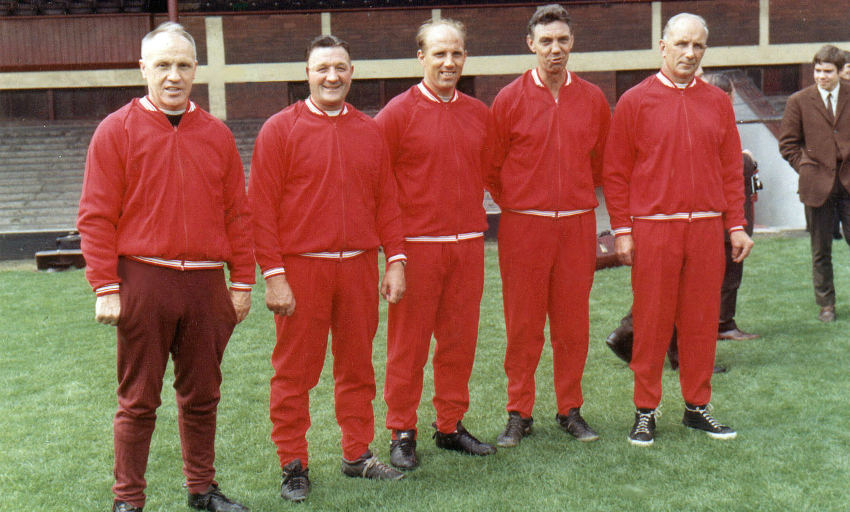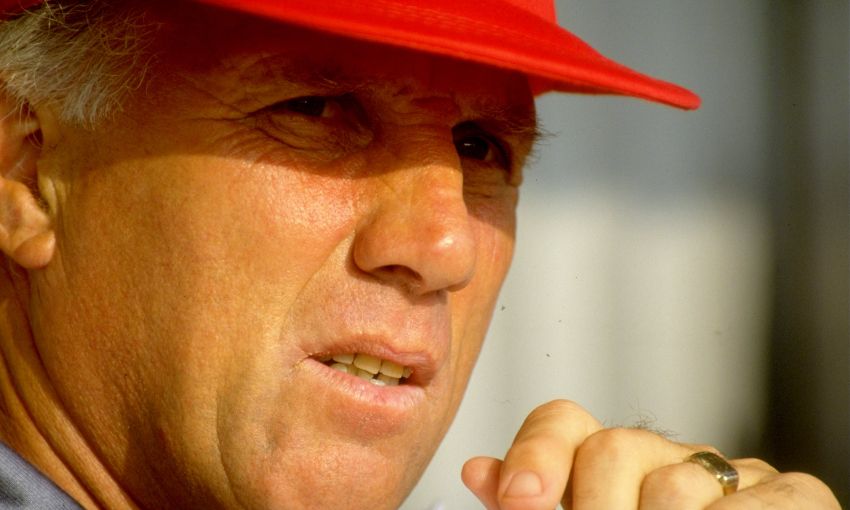St John: Ronnie Moran's LFC journey is unique
Apprentice, player, captain, coach, physio, caretaker manager.
It’s a career arc few in football could possibly match, and for Ronnie Moran it happened at one club. Not just any club either, but the one he cherished, the one he strove to guide to success. The one he served for 49 years.
‘Mr Liverpool’ passed away at the age of 83 on Wednesday morning, prompting a huge number of tributes from friends, fans, former teammates and colleagues, ex-players, current players, rival clubs and many more.
Ian St John played alongside Moran as Bill Shankly lifted the Reds from the Second Division to glory in the top flight and laid the foundations for even greater triumphs.
The striker then watched on as the man from Crosby switched to coaching and fulfilled almost every conceivable role behind the scenes, keeping Liverpool’s squad hungry and honest until his retirement in 1998.
“He stayed within the club,” St John recalled of Ronnie’s transition.
“He played with the reserves and then when he was finished he got a job. His first job was looking after the reserves and the kids, with Joe Fagan. He just continued with the club.
“It’s quite amazing – you wouldn’t get it today. A new manager comes in every other week and brings his own staff with him, who last the same time as him. It’s a revolving door for everybody.
“But Liverpool had stability with Shanks, Bob [Paisley], then Joe, then Ronnie, Roy [Evans]… the whole thing just rolled on with staff. It was the way to do it and it was great for Ronnie because he just led his whole life that way.
“To think that you’re getting up in the morning and going to the same place to work all your life is unique; from schoolboy, leaving school and getting a job and that’s your job right through to the end of your life – quite amazing.
“Obviously he made a big contribution to whatever role he had within the club.”
Moran was a founding member of the fabled Boot Room and studiously recorded diaries which mapped out the methods and wisdom underpinning the Reds’ rise to dominance.
His knowledge of the game was matched by his man-management skills, with players left in no doubt as to the standards expected at the club whenever he was around.
Simplicity was fundamental to everything. So too humility.
“There was a line obviously, coming down from the boss, then Bob, then Joe, then Ronnie,” explained St John.

“But everybody seemed to get on great. They would have their afternoon meetings in the Boot Room and talk it through, planning for Saturday and the next game. That was the way it went. It was a seamless thing.
“The players were outside of it, just training and playing. They’re your bosses when you’re training and playing, it doesn’t matter whether it was Ronnie with his team – the younger kids – he was the boss of that.
“Then they all moved up the line when Shanks finished; Bob stood in and they all moved up one. Then Bob went and Joe got in and they shuffled up again. It was a terrific way to do it.
“Other clubs must have looked at it and thought ‘there’s no rocking the boat there with managers and staff’. Everything just went ever so smoothly.
“It’s an amazing thing that Ronnie Moran could go through his football life at one club, with the roles he had at one club and the success they had at the club. It’s not as if he’s got a job at a club who aren’t doing an awful lot and are quite happy to keep the staff they’ve got.
“This was a team that was winning everything, really making its mark not only in European football but in world football. He was very much part of that, the rise of Liverpool from the Second Division days to what they became.”



